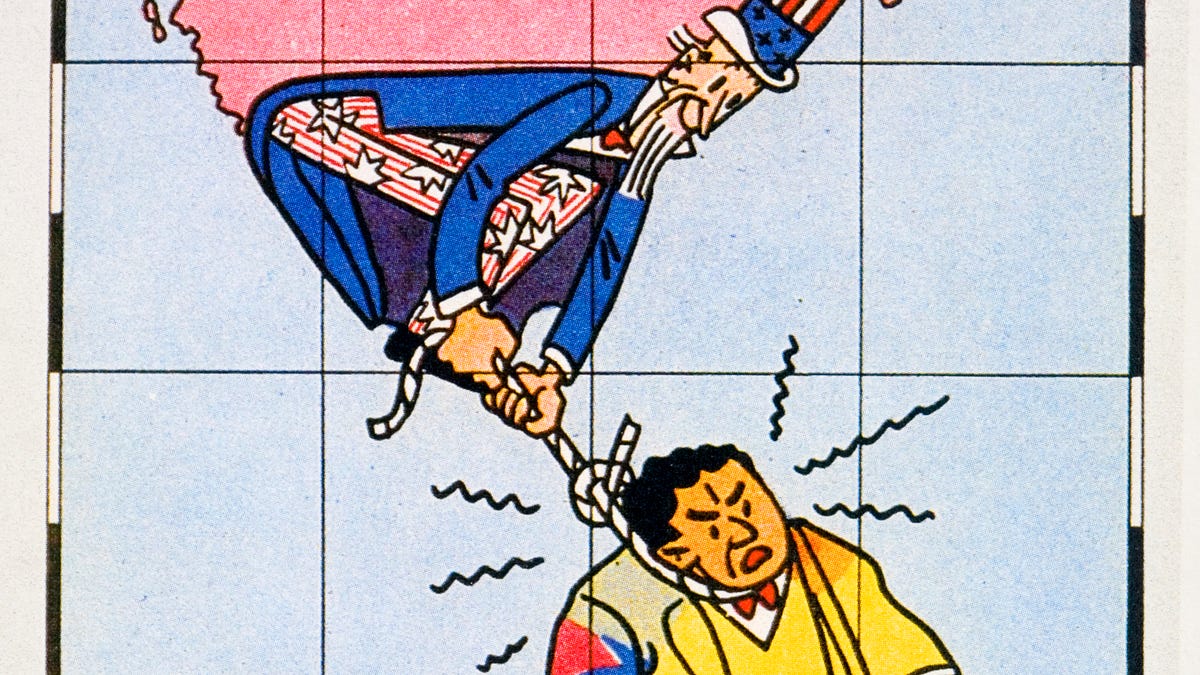
In the context of U.S. Vice President Kamala Harris’ last visit to Guatemala, where she told Central American people “do not come” to her country, she also emphasized the need to deal with the “root causes” of migration. This has been a central issue for the Biden administration in the region. Although it certainly is essential to address the structural factors pushing thousands of people to flee their countries of origin, this concept has been coopted to excuse U.S. responsibility for the economic and social crises in the countries of the Northern Triangle (El Salvador, Guatemala and Honduras). To blame poverty and violence is to attack the symptoms without addressing the root cause. Who was it that empowered those governments and the plutocracies in those countries, helping to overthrow democratically elected governments in the past? The United States. And who was it that imposed a “free market” model that primarily serves the U.S. corporations that plunder the countries and displace the people? The United States.
In the last few months, several different initiatives by the U.S. to support Central America have been announced. In April, Vice President Harris announced that her country would grant $310 million in humanitarian aid to Guatemala, El Salvador and Honduras. As part of its budget projection for the U.S. Congress, the Biden administration is requesting $861 million in aid for Central America during the next fiscal year. This is the first step in its plan to allocate $4 billion to the region over four years, and part of its strategy for dealing with migration. This is no small sum. However, while the Biden administration can now feel generous towards Central America, just one mining company from Nevada, Kappes Cassiday & Associates, is suing the Guatemalan government for $400 million in the Investor-state dispute settlement tribunal of the World Bank (see the article by Jen Moore and Ellen Moore at https://cutt.ly/vn0dFE1). KCA argues that the government failed to protect its mine from the local communities that set up a permanent protest called La Puya to decry the mine’s contamination of their scarce water resources. There are many other multi-million dollar claims facing the countries of Central America, or threatening them, supported by the Central American Free Trade Agreement’s Chapter 10’s protections for investments.
In past articles, I have documented how Mexico is currently being sued for $4.54 billion by three mining companies under the North American Free Trade Agreement. The extension of special privileges to corporations and the rigid restrictions placed on governments by free trade agreements allow for the violent expulsion of rural and indigenous communities throughout Mesoamerica and the destruction of their ways of life. The ISDS framework contained within the free trade agreements allows companies to sue the government for enforcing environmental protections, usually in defense of water resources that were won through social struggle and the sacrifice of many lives. The ISDS is used as a neocolonial instrument to discipline and punish governments and protect the interests and expected profits of transnational firms. The countries of Latin America are the principal target of these extractive companies.
But it is not just governments who are the target of international lawsuits. The Business & Human Rights Resource Centre has documented how defenders of the environment and natural resources must face powerful interests that are looking to silence them (https://bit.ly/2UimQZC).
Strategic Lawsuits Against Public Participation are a tactic used by companies to put a muzzle on anyone who opposes them. SLAPP can take the form of a formal accusation or civil lawsuit intended to intimidate, dissuade, bankrupt and silence critics. Thirty-nine percent of all SLAPP occur in Latin America, and Honduras, with 46 cases, ranks second in the world. One example from that country is that of the four Garífuna women leading the Organización Fraternal Negra Hondureña, who have been facing charges since 2017, when they were accused of defamation and slander by a hotel company. These leading women defend the Garífuna ancestral lands from tourism projects by transnational companies. Another example in Honduras is the eight advocates from Guapinol, arbitrarily thrown in jail almost two years ago for defending their water resources in the face of the Los Pinares mining project, associated with U.S. capital. The Working Group on Arbitrary Detention at the United Nations has urged the government of Honduras to free the advocates.
If we cannot dismantle the neoliberal regulations that extend disproportionate privileges to transnational corporations, that destroy ways of life and create violence (which I will tackle in a second part of this article), then we will not be addressing the root cause of migration.

Leave a Reply
You must be logged in to post a comment.